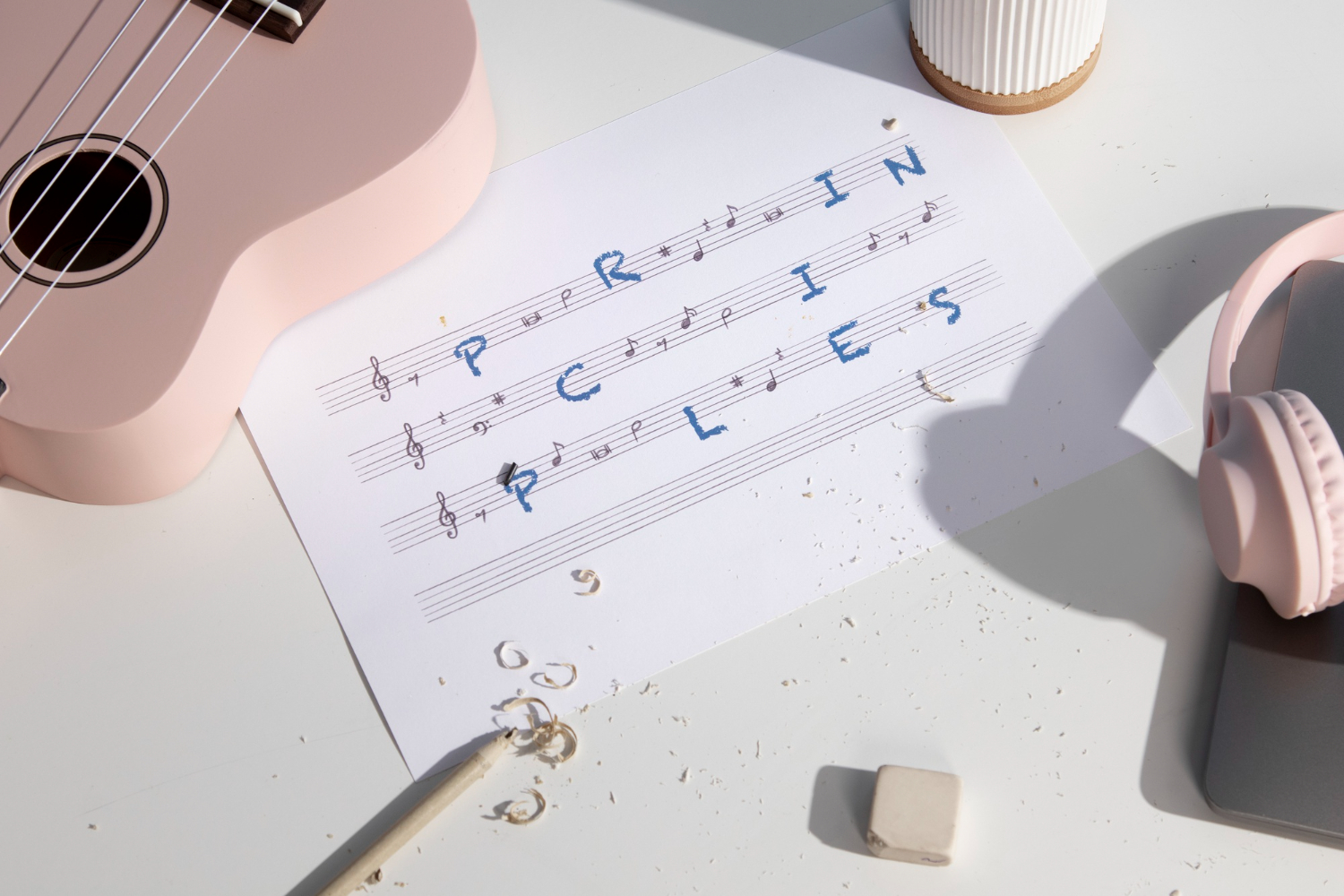Repetition is one of those songwriting tools that seems simple but holds incredible power. I’ve always been fascinated by how repeating a word, phrase, or melody in a song can create emphasis, build emotion, and help listeners connect more deeply. When used well, repetition can transform lyrics from ordinary into something unforgettable.
In my own songwriting, especially when I’m out in nature or relaxing in my RV, I’ve discovered that repetition is not just about saying the same thing over and over. It’s about reinforcing ideas, building tension, creating hooks, and guiding listeners through an emotional journey. The subtle power of repetition goes far beyond mere redundancy , it’s a way to communicate meaning, mood, and feeling in a unique way.
This article will explore how repetition functions in lyrics, why it’s so effective, and how I use it to elevate my songs. Whether you’re new to songwriting or looking to refine your craft, understanding repetition’s role can open up new creative possibilities.
Why Repetition Works in Songwriting
Repetition works because our brains are wired to notice and respond to patterns. When something is repeated, it becomes familiar and easier to remember. That’s why catchy choruses often repeat key lines or phrases.
Beyond memorability, repetition also creates emphasis. By returning to certain words or ideas, a songwriter highlights what’s important or emotional in the song. It draws listeners’ attention to themes or feelings that deserve focus.
Repetition can also evoke a hypnotic or meditative effect, pulling listeners into the song’s mood. In some cases, repeating a phrase builds tension, with the eventual change or release becoming more powerful.
Types of Repetition in Lyrics
I’ve noticed several types of repetition that serve different purposes:
- Exact repetition: Repeating the same word or phrase verbatim, often in choruses or refrains.
- Partial repetition: Repeating a phrase with slight variation, adding new meaning or nuance.
- Rhythmic repetition: Using repeated rhythmic patterns in lyrics, regardless of the words.
- Melodic repetition: Repeating a melodic motif that supports the lyrical repetition.
Each type contributes to a song’s emotional flow and engagement in unique ways.
Repetition Builds Hooks That Stick
Hooks are often the heart of a song’s appeal, and repetition plays a crucial role in making hooks memorable. I find that repeating a catchy phrase or melody in the chorus helps listeners latch onto the song quickly.
For example, a phrase repeated several times with increasing intensity becomes an anthem, inviting people to sing along. Repetition in hooks also makes songs easier to remember, increasing their chances of being played again.
How Repetition Creates Emotional Impact
Repetition in lyrics can heighten emotional impact by drilling into a feeling or idea. When I repeat a phrase that expresses longing or pain, the emotion deepens with each iteration.
Sometimes, repeating a hopeful or uplifting line reinforces positivity and strength. Repetition lets the listener live with an emotion, feeling it more intensely as the song progresses.
Using Repetition to Build Tension and Release
One of the most powerful uses of repetition is building tension. I’ve experimented with repeating lines or words in verses or pre-choruses to create anticipation.
The listener expects something to change or resolve, and when the chorus or bridge finally offers release, it feels satisfying. This buildup through repetition keeps the song dynamic and engaging.
The Balance Between Repetition and Variety
Repetition is powerful, but overdoing it can make a song feel monotonous. I try to balance repeated elements with fresh lyrics, melodies, or rhythms to keep interest alive.
Mixing repeated lines with new verses or a contrasting bridge provides variety while still grounding the song in familiar themes. The key is using repetition thoughtfully rather than mechanically.
How I Use Repetition in My Writing Process
When I write, repetition often emerges naturally. If a line or phrase feels particularly strong or emotional, I experiment with repeating it.
Sometimes I start with a repeated chorus idea and build verses around it. Other times, I use repetition within verses to create a rhythmic pattern or mood.
I also pay attention to how repetition works with melody and instrumentation, making sure the combined effect supports the song’s feeling.
Repetition and Storytelling in Lyrics
Although repetition can emphasize ideas, it can also contribute to storytelling. Repeated lines can reflect a character’s obsession, a recurring thought, or a cyclical experience.
For instance, repeating a line about lost love or regret can mirror how those thoughts replay in someone’s mind. This use of repetition adds depth and realism to the song’s narrative.
Repetition in Different Genres
Repetition shows up in almost every music genre, but its use varies. In pop, repetition often drives the catchy chorus. In folk and country, repetition might reinforce a story or emotion.
In hip-hop and rap, repeated hooks or phrases create rhythm and energy. Even in rock or blues, repetition can evoke trance-like states or intensify emotion.
Exploring how different styles use repetition has influenced my own songwriting approach.
Examples of Effective Repetition in Songs
Some of my favorite songs demonstrate the subtle power of repetition beautifully. Take “Let It Be” by The Beatles, where the phrase “let it be” repeats throughout, offering comfort and resolve.
Or Leonard Cohen’s “Hallelujah,” where repeated lines shift in meaning with each verse. These songs show that repetition can be both simple and profound.
Avoiding Common Pitfalls With Repetition
A common mistake is using repetition without purpose, which can make lyrics feel lazy or filler. I make sure every repeated line serves a function , whether emphasizing emotion, creating rhythm, or advancing the story.
I also avoid repeating too many lines consecutively unless it’s intentional for effect. Subtle shifts in wording or melody keep repetition fresh and engaging.
Repetition as a Tool for Connection
Repetition invites listeners to participate, whether by singing along or feeling the emotion more deeply. When a repeated phrase resonates, it becomes a shared experience.
I’ve noticed that songs with effective repetition often become anthems or favorites in group settings because they’re easy to remember and emotionally powerful.
Using Repetition to Reinforce Themes
Themes in songs benefit from repetition because it keeps the main ideas front and center. I repeat key phrases that capture the heart of the song’s message.
This reinforcement makes the theme clear and unambiguous, helping listeners connect with the song’s meaning on multiple listens.
Tips for Using Repetition Creatively
To get the most from repetition, I recommend:
- Experimenting with where and how often you repeat phrases.
- Varying melody or rhythm while repeating lyrics.
- Using repetition to build tension before release.
- Combining repetition with new ideas for contrast.
- Listening critically to songs you admire to see how they use repetition.
Final Thoughts on the Subtle Power of Repetition in Lyrics
Repetition is a powerful and versatile songwriting tool that shapes how songs feel and connect. When used with intention, it helps build hooks, deepen emotion, create tension, and invite participation.
The subtle power of repetition lies in its ability to make songs memorable and meaningful without overwhelming the listener. It’s a balancing act that I continue to explore in my own writing, whether I’m inspired by the open road, quiet forests, or the calm of my RV.
The next time you write lyrics, pay attention to how repetition can strengthen your message and pull listeners into your story.

